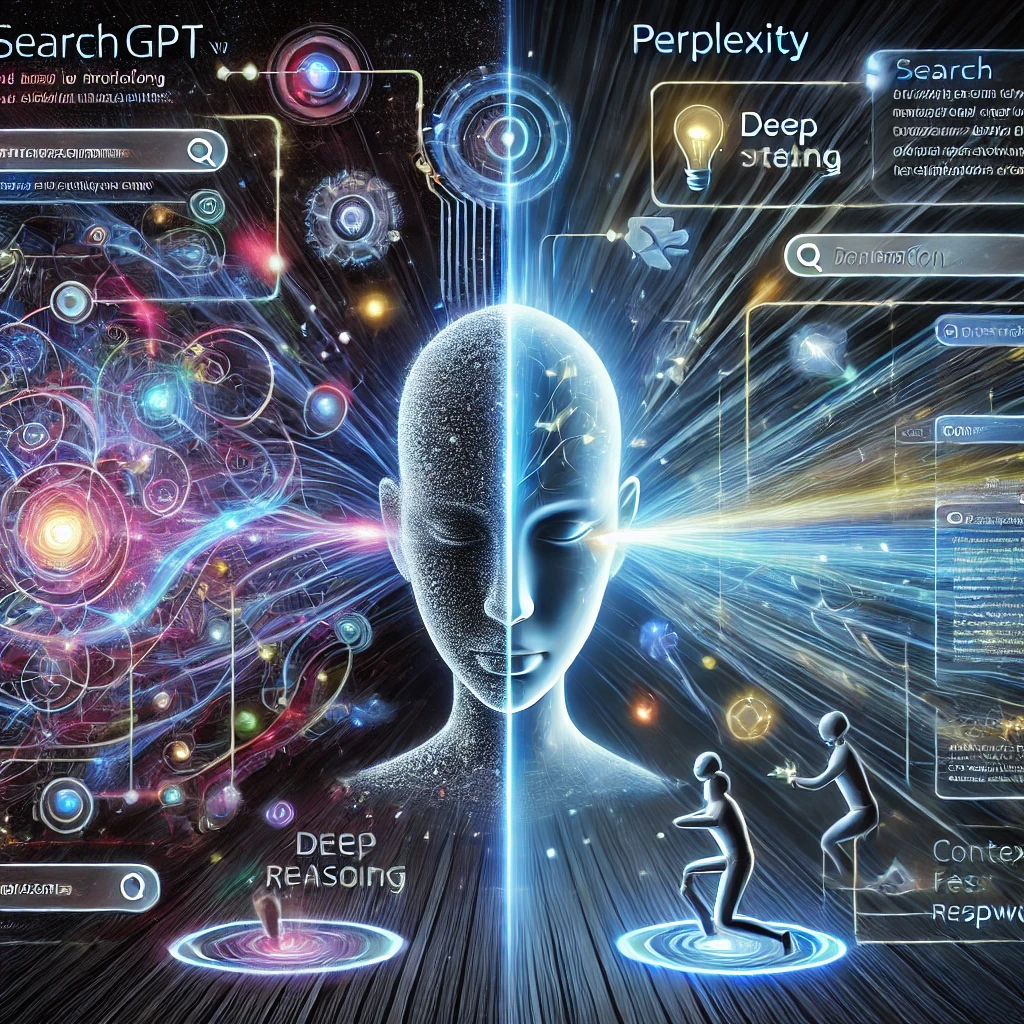In the ever-evolving landscape of artificial intelligence, search technologies are experiencing rapid advancements. Among the newest innovations, AI-powered search engines like SearchGPT and Perplexity have emerged as key players, offering users a more dynamic, context-aware, and conversational search experience. But how do they compare? In this article, we will explore the key features, capabilities, and differences between SearchGPT and Perplexity, shedding light on which tool might better suit various user needs.
Overview of SearchGPT
SearchGPT, built upon the powerful GPT (Generative Pre-trained transformer) architecture, combines search engine functionality with the conversational capabilities of a large language model. It is designed to understand user queries more deeply than traditional search engines by processing the context behind each search request. By doing so, it can provide highly relevant, nuanced, and conversational responses.
Key Features of SearchGPT:
- Conversational Search: SearchGPT functions much like a virtual assistant. Users can ask follow-up questions and refine their search queries without needing to start from scratch.
- Context-Aware Responses: The AI remembers previous interactions within a session, allowing it to provide results that align with prior queries or conversations.
- Multi-Step Reasoning: It can handle complex questions that require multi-step reasoning, providing detailed and structured answers based on multiple sources.
- Natural Language Understanding: The model is capable of interpreting natural language queries, even if they are not phrased in a traditional search format.
- Enhanced Results: Instead of just providing links to websites, SearchGPT offers in-depth answers, summaries, and recommendations, pulling information from diverse sources.
Overview of Perplexity
Perplexity is another advanced AI-powered search engine designed to deliver fast, accurate, and informative search results. Similar to SearchGPT, it employs a language model to understand and respond to queries in a more human-like manner. However, it places a stronger emphasis on providing concise, fact-based answers while still offering a conversational experience.
Key Features of Perplexity:
- Fact-Based Summaries: Perplexity excels at delivering succinct, factual information directly in response to user queries.
- Streamlined Interface: The search process is simplified for users who prefer quick, efficient results without long conversational interactions.
- Source Attribution: Perplexity is particularly strong in transparently providing the sources of its information, helping users verify the accuracy of its answers.
- Minimalism in Interaction: Unlike SearchGPT, which fosters ongoing conversations, Perplexity is more focused on giving immediate, straightforward responses, making it ideal for users who want quick answers with minimal back-and-forth.
- Faster Response Time: By prioritizing concise answers, Perplexity tends to provide results more quickly than SearchGPT, particularly for straightforward queries.
Comparison of SearchGPT and Perplexity
While both SearchGPT and Perplexity offer advanced search capabilities powered by AI, their approaches differ in several key areas.
Conversational Depth:
- SearchGPT allows for rich, ongoing conversations with users. It can handle more complex, multi-step queries and build upon previous interactions in a single session. This makes it an excellent tool for users looking to engage in deeper research or explore topics in greater detail.
- Perplexity, on the other hand, emphasizes quick, one-time interactions. It excels at providing concise, factual answers but is less focused on prolonged conversations.
User Experience:
- SearchGPT offers a more interactive experience. It feels like a personal assistant, guiding users through the search process and helping them refine their queries. This is particularly useful for users who may not know how to phrase their question effectively.
- Perplexity adopts a more streamlined, minimalist interface, which is designed for users who value speed and efficiency over conversational engagement.
Response Format:
- SearchGPT tends to offer longer, more detailed responses, often pulling information from multiple sources and presenting it in a coherent narrative. This makes it ideal for exploratory searches where users are looking for comprehensive insights.
- Perplexity is optimized for delivering concise, factual answers. It often provides a quick summary or fact-checkable data without the additional layers of explanation that SearchGPT offers.
Speed and Efficiency:
- SearchGPT takes slightly longer to process queries, particularly when engaging in more complex conversations or pulling data from multiple sources. This trade-off comes with the benefit of more thorough answers.
- Perplexity is designed for speed, often delivering answers in a matter of seconds, making it a better choice for users who prioritize getting rapid results for straightforward queries.
Use Cases:
- SearchGPT is well-suited for users involved in research, education, or professional fields that require in-depth exploration of topics. It shines when tackling nuanced questions, long-form discussions, or when users are seeking assistance in understanding complex topics.
- Perplexity is ideal for users who need quick, fact-based answers. Its clean interface and rapid response time make it perfect for casual searches, quick fact-checking, or when the user has a very specific, simple question.
Conclusion: Which One Is Right for You?
Choosing between SearchGPT and Perplexity ultimately depends on your search habits and what you’re looking to achieve.
- SearchGPT is an excellent tool for users who appreciate a more conversational, assistant-like interaction. It provides depth, context, and a more engaging experience, making it particularly valuable for complex queries that require more than just a quick fact.
- Perplexity, on the other hand, caters to users who need quick, straightforward answers. Its fact-based summaries and speed make it a strong choice for those who prefer efficient, no-nonsense search results.
Both tools are at the forefront of AI-driven search innovation, but each has carved out its own niche in the market, offering unique value depending on the user’s needs. Whether you prefer detailed conversations or concise answers, both SearchGPT and Perplexity have something to offer, making search easier, faster, and more intelligent.
[SEO optimized]

